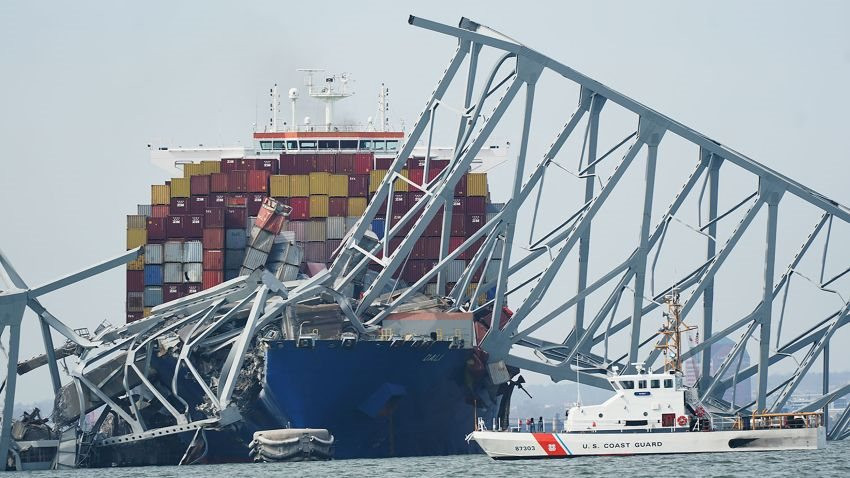Baltimore Catastrophe Could Become the Largest Insurance Compensation in Maritime History

Catastrophes have always been a concern for insurance companies worldwide, and the recent incident involving a container ship colliding with the Francis Scott Key Bridge in Baltimore, USA, is no exception. The potential losses are estimated to reach billions of dollars, affecting numerous global insurance conglomerates due to the extensive damages caused to the vessel, cargo, and the collapsed bridge itself.
Preparing for a Major Insurance Compensation Event
Insurance companies are actively preparing for what could be a significant insurance compensation event in their industry. Bruce Carnegie-Brown, Chairman of a London-based insurance company, emphasized the importance of adequately assessing the potential impact and resources needed to handle this catastrophic accident. While no specific figures have been provided yet, Carnegie-Brown hopes that the compensation payout will align with their preparedness. However, given the magnitude of the damages incurred, it could potentially surpass any previous maritime losses.
Ripple Effects and Secondary Impacts
Apart from insuring the ship, cargo, and bridge, the insurance industry needs to be ready for the secondary impacts, which will undoubtedly be substantial. The interruption in business activities and supply chains due to the stranded vessels could cause significant disruptions. It will take a considerable amount of time to assess the full extent of these effects. Baltimore, being the 11th-largest port in the US and the busiest in terms of global automotive import and export, is currently striving to minimize the impact on its trade operations.
Estimated Insurance Losses and the Scope of Coverage
Morningstar DBRS analysts estimate the insured losses to range between $2 to $4 billion, depending on the duration of the port closure. This figure would surpass the compensation paid for the Costa Concordia cruise ship disaster of 2012. Various insurance policies can be triggered for maritime liability, hull, property, cargo, and business interruption. Several insurance companies will be involved in compensating for the catastrophe and its secondary impacts.
Confidence in the Insurance Industry’s Resilience
Despite the potential severity of the losses, Morningstar DBRS maintains hope that the insurance industry can manage them effectively. The involvement of well-capitalized insurance and reinsurance companies offers reassurance in handling this incident, given the large and diverse group of insurers. Barclays, on the other hand, predicts insurance payouts ranging from $1 to $3 billion.
Investigation and Legal Responsibilities
Both Singapore and the US will conduct investigations to determine the legal liabilities in this complex process, which may span several months or even years. As the ship’s charterer, Maersk bears legal responsibility rather than being the operating entity. Global companies are evaluating the impact of this catastrophe on their operations and anticipate having to adjust their trade routes, potentially leading to longer delivery times. However, it is hoped that there will be no prolonged disruptions at present.
Potential Impact on the Automotive Industry
Barclays analysts predict that German car manufacturers such as BMW, Mercedes, and Volkswagen will be highly affected as European imports account for 40-50% of US car sales in recent years.
Reference: CNBC
